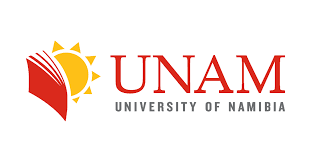The bridge between science and practice: embedded researchers
This project carried by the University of Namibia aims to translate existing knowledge from research into policy and practice and vice versa, and to develop new knowledge around shared urban development and climate change questions.

Overview of the project
Tackling climate change in cities involves a wide array of coordinated and sustained actions across a range of sectors and scales, requiring collaboration and shared knowledge. Embedded research is one approach to address this complexity – it involves co-producing robust and actionable knowledge, thereby strengthening the governance of climate change in cities. Embedded researchers work with city officials, policy-makers and scientists to translate existing knowledge from research into policy and practice and vice versa, and to develop new knowledge around shared urban development and climate change questions.
Translate existing knowledge from research into policy and practice and vice versa, and to develop new knowledge around shared urban development and climate change questions.
Ongoing research
01/06/2016 - 6/30/2019
Ten tips to beginner embedded researchers
Embedded research is a challenging but rewarding experience. FRACTAL’s embedded researchers and embedded researchers coordinator share their advice to young people embarking on this path.
1. Do not work in isolation: Prepare to be a bridge between different organizations, and continue building communication and interpersonal skills in order to fulfill your role of ‘neutral’ go-between.
2. Build trust with colleagues: Always thrive to build and maintain trust, as the embedded researcher role is a process of continuous learning and engagement.
3. Don’t feel anxious when progress seems slow: Solid products and relationships take time to develop.
4. Always be ready to try new approaches: Be proactive, dynamic, ambitious and bold.
5. Keep your eyes, ears and mind open because sometimes valuable information and opportunities come from unexpected places and people.
6. Do not be afraid to ask for help with tasks that you do not fully understand.
7. Do not panic when you feel overwhelmed with new information and new demands, take your time, read and learn more … this is when the biggest learning happen.
8. Learn to say “no” (nicely): Do not overload and overcommit yourself – learn to say “no” when colleagues ask too much of you.
9. Keep a journal: Start keeping a journal as soon as you start because reflecting on what you see, hear and do helps to make sense of it.
10. Go for it! : It will seem daunting and unfamiliar, but you will learn so much and become a more skilled, knowledgeable and networked researcher and/or practitioner.
UK’s Department for International Development (DFID) and the Natural Environment Research Council (NERC)
organisation
Future Resilience for African Cities and Lands (FRACTAL) is a trans-disciplinary group of researchers from partner organisations around the world. FRACTAL aims to advance scientific knowledge about regional climate responses to human activities. Together with a broad range of stakeholders, researchers are working to co-produce relevant knowledge that will support resilient development pathways and enable decision-makers to better integrate pertinent climate knowledge into their resource management decisions and urban development planning.
in collaboration


